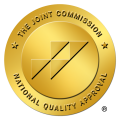Addressing Emotional Abuse During Addiction Treatment
With thousands of people experiencing domestic violence and addiction, many wonder how emotional abuse could impact their addiction treatment.
Article Contents
Understanding Emotional Abuse
According to the National Institute on Drug Abuse, over 7.7 million adults have co-occurring substance use and mental health disorders.1 With emotional abuse and intimate partner violence well established in their contribution to mental health issues, many are exploring the nature of their impact on addiction treatment.
Emotional abuse at its core is a method of control that uses emotions to make someone feel less than, unworthy, isolated, unable to trust their perceptions, and – most importantly – reliant on the abuser. Because emotional abuse is often much less obvious than physical or sexual abuse, many suffering its impact may view this treatment as “normal.”
However, while emotional abuse may have been normalized by a significant other or in childhood, it is never okay and should be addressed alongside substance abuse if you’re seeking addiction treatment.
What is Emotional Abuse?
Emotional abuse (also called mental abuse) is a type of intimate partner violence or domestic violence that can feature verbal assault, isolation, control, dominance, ridicule, and the use of intimate knowledge to degrade an individual’s emotional and psychological wellbeing.2
For the Abuser
Emotional abuse is often related to insecurity and the need for control. Sometimes, abusers may have experienced abuse growing up, have a substance use disorder or anger issues, or feel so deeply insecure, inferior, or afraid that they are unable to empathize with others.3 Regardless of the cause, there’s no excuse for the choice to hurt others, especially those we claim to care about.
For the Abused
It can be hard to identify when a few comments here and there and other normal relationship issues cross the line into a pattern of emotionally abusive behavior. Because emotional abuse strategically targets self-esteem, reduces social support, and often seeks to make the abused doubt themselves and their minds, it can be easy for people subjected to this abuse to remain in these unhealthy relationships.
An estimated 10 million people are affected by domestic violence annually in the United States,3 with the CDC’s National Intimate Partner and Sexual Violence Survey reporting that over one-third of women (36.4% or 43.5 million) and men (34.2% or 38.1 million) experienced psychological aggression by an intimate partner during their lifetime.4
Types of Emotional Abuse
Verbal
Perhaps the most common type of emotional abuse, verbal abuse can include anything from name-calling to innuendos that are meant to diminish self-worth. Verbal abuse can be said in loving tones or even as a joke, but “jokes,” “compliments,” and “comments” that hurt you are verbal abuse.
Rejection
Rejection, or “cold-shouldering,” is another tactic used by people who mentally abuse their partners. When mild, cold-shouldering might not seem like a big deal, feeling passive-aggressive at most. At its worst, abusers will go about their day as though their partner does not exist, ignoring them as they attempt to communicate or apologize, often leaving the victim feeling ashamed and vulnerable.
Gaslighting
The term “gaslighting” originates from a play written in 1938 titled “Gas Light,” where a husband uses emotional and psychological tactics to make his wife doubt her sanity, so he can commit her to an asylum and steal her riches.
As such, gaslighting refers to the practice of making someone believe he or she is going crazy. Emotional abusers may gaslight by denying events that hurt you ever happened or rewriting events so you gradually learn that you cannot trust your sanity and must rely on your partner.
Put-downs and Bullying
Name-calling and put-downs can be surprisingly painful. One jab using the right word can trigger a cascade of pain, especially when it relates to sensitive areas relating to our identity and self-worth, like one’s masculinity or femininity, sexuality, body image, passions, and more.
Intimidation
Emotional abuse often features aggression, anger, and violence. However, while physical abuse reflects physical harm, many who partake in mental abuse often use their anger and violence (e.g., throwing or breaking items) to scare their partners, creating an atmosphere of fear and compliance.
Isolation
Many people who’ve been abused in relationships have experienced the social deprivation many abusers attempt to instigate. People who emotionally abuse their partners may subtly discredit their partner’s friends, family, and loved ones, creating distance and distrust till their partner’s only source of connection and trust is with them.
Financial Abuse
Many do not talk about it, but financial abuse is another form of emotional abuse. Abusers may restrict access to finances – whether shared or independent – to breed a sense of reliance on the abuser. They may prevent their significant other from working or spending money without their permission, leaving their partner financially reliant on them.
Signs of Emotional Abuse
The signs of domestic violence and abusive character can vary depending on the person and length of the relationship, there are several common signs to look out for. While the signs of emotional abuse for the abused often appear as mental health issues like anxiety, low self-esteem, and PTSD, the signs of emotional abuse in a partner often look a bit different.
Physical Violence
Physical violence that isn’t targeted towards physical harm, like breaking plates, punching a wall, or slamming doors, is often a precursor to physical abuse.
While these violent actions may not physically hurt, they are often intended as tactics to elicit fear and give the aggressor a sense of control and can suggest an abusive character who may grow more abusive with time.
Anger Management Issues
Many people can find themselves stuck in the difficult position of trying to figure out when anger crosses the line into abuse. If you are struggling with this difference, a good rule of thumb is to ask yourself, “is a one-off instance relating to a specific event, or is this a pattern of behavior?”
While it’s still not okay for someone to take out their anger on you, a single outburst isn’t indicative of an emotional abuser, whereas a pattern of anger issues suggests the possibility.
What is Trauma Bonding?

Anyone who has been in an abusive relationship before knows it can feel nearly impossible to leave. The cycle of abuse followed by kindness and declarations of affection can often create powerful feelings (trauma bonding) of closeness in the shared experience that only you and your partner know.
This issue is especially true if our partner has isolated us from loved ones, leaving them as our only source of connection to talk about relationship issues. When we remain in abusive relationships for longer periods, our sense of reality can become warped, making it harder to break trauma bonding over time.
Emotional Impacts
While many are quick to think of physical and sexual abuse for the impact they wreak on our lives, research suggests emotional abuse may be just as, if not more damaging, to our mental and physical wellbeing.
Emotional abuse can impact:
- Self-esteem
- Depression
- Anxiety
- PTSD
- Trauma
- Addiction
- Stress
Physical Impacts
Research has also found that women experiencing domestic violence are more likely to experience diabetes, irritable bowel syndrome, and asthma, suggesting that emotional abuse contributes to chronic levels of stress that can impact mental and physical wellbeing.
Other stress responses that can be seen as a side effect of emotional abuse include:
- Difficulty concentrating
- Mood shifts
- Trouble sleeping
- Muscle tension
- Racing heartbeat
- Chronic pain
- Insomnia
Why Do Emotional Abuse and Addiction Often Co-Occur?
Posing a tricky chicken-or-egg conundrum, emotional abuse and addiction often co-occur. When we explore the underlying roots of addiction and emotional abuse, there are often entangled relationships between the drug or abusive partner as a method of “curing” self-doubts, anxious thoughts, mental disorders, or histories of trauma.
Research suggests that while the vast majority of people who grew up in abusive relationships or were exposed to drug use are often at higher risk, both for substance abuse and replicating cycles of abusive or destructive behavior in future relationships.
Addiction alone can lead to isolation from friends and family, guiding people with substance use disorders to connect with other people with addiction who may not be able to maintain healthy relationships. On the flip side, the more isolated we become from emotional abuse, the more we may turn to alcohol or drugs as a ticket to relief from the mental anguish we find ourselves in.
Tips for Dealing with Emotional Abuse
If you are struggling with emotional abuse and looking for ways to try and heal your relationship or to leave your relationship, there are several approaches you can try.
#1 Make Yourself a Priority
There is often an imbalance of priorities in abusive relationships where the abuser is prioritizing their own emotional needs at the sacrifice of the abused, and the abused is also prioritizing the abusers’ needs above their own. So, first things first, think about yourself. What do you need to feel good? In this relationship and life?
#2 Establish Boundaries
Emotional abusers are excellent at using guilt-tripping and other emotionally manipulative tactics to get their partners to bend to their will and feed their need for control, so it’s important to establish strong boundaries.
Remember – your boundaries are not about hurting your partner, even if they try to guilt you into seeing them that way. They are about making sure you also get what you need to feel good about yourself and the relationship.
#3 Avoid Engaging
As you become more aware of your partner’s patterns of abuse, avoid engaging in moments that could spark a greater flame. In no way is this your responsibility, but it can help defuse moments of tension where your partner is trying to draw you into their toxic cycle of abuse.
#4 Exit Plan
If you have decided to leave the relationship, it’s always best to have an exit strategy. Emotional abuse can tend to escalate, so take the time to make sure you’re protecting yourself and build strategies so you stay firm in your decision.
Healing from Emotional Abuse During Addiction Treatment
The road to healing from emotional abuse can be slow-moving, especially when co-occurring with addiction, but it is not without hope. If you are on the path to recovery and seeking full-scale healing, there are several paths available to you.
Build a Strong Support Network
Build a strong support system. Coming out of isolating and confidence-wrecking emotionally abusive relationships can be scary when we do not have a support system to lean on. Reconnecting and rebuilding relationships with friends and family who we lost touch with, joining support groups, or joining local meetups for previously enjoyed passions can help nourish your self-esteem and resilience.
Therapy
For many in the throes of recovery from both addiction and emotional abuse, therapy is a good option to consider. Therapies like dialectical behavioral therapy (DBT) can help heal underlying emotions to improve coping systems, increase understanding of our thoughts and feelings, and help us make choices and take action in ways that align with our goals and needs.
Seek Professional Help
Individual counseling can provide a third pathway to healing from emotional abuse during addiction treatment. Many of the reasons we turn to drugs (e.g., anxious thoughts, trauma, low self-esteem, desire for distraction, relief from suffering) overlap with the impact of emotionally abusive relationships. Having someone you trust on your side who will be with you every step of the way as you explore and heal these parts of your life can help.
If you’re looking for support on your journey to heal emotional abuse and addiction, we at Headlands ATS are here for you.
Reach out today to schedule a time to talk with our specialized care team coordinator.




